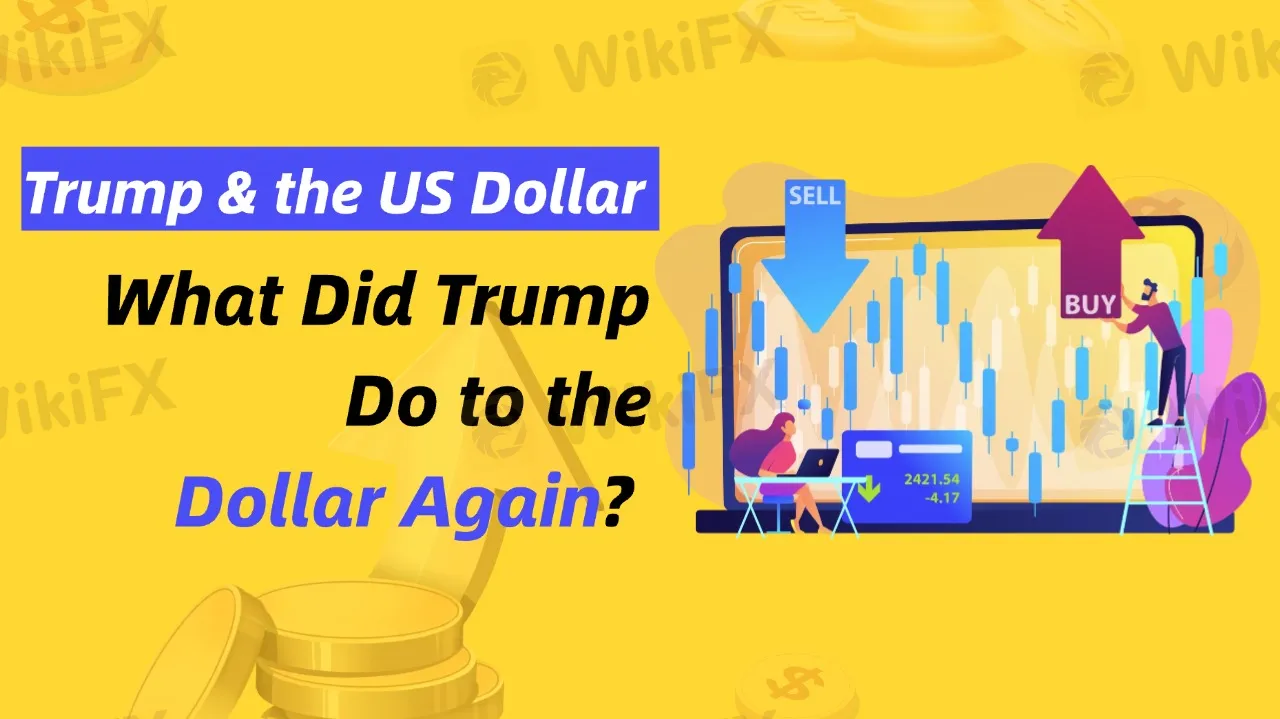What Did Trump Do to the Dollar Again?
Abstract:What decision did Trump make regarding tariffs? Why did it cause Asian stock markets to fall while strengthening the US dollar?

On February 9th, US President Trump announced a 25% tariff on all imported steel and aluminum, which caused Asian stock markets to decline while the US dollar strengthened.
This new tariff policy is expected to escalate tensions in the trade war, push inflation higher, and impact the Federal Reserve's monetary policy. Trump's decision may lead to further strengthening of the dollar.
After the announcement, Asian stock markets opened lower, with the MSCI Asia-Pacific Index down 0.3%, the major index in South Korea falling 0.6%, and the Nikkei Index also seeing a slight decline. However, the US dollar performed strongly, with the dollar index reaching 108.26, hitting a new high.
The EUR/USD exchange rate fell 0.1%, while the USD/JPY rate rose to 151.82 yen. This reflects market expectations that tariffs could push US inflation higher, prompting investors to flock to the dollar as a safe-haven asset.
Trump's tariff policy limits the Fed's ability to cut interest rates. The tariffs may push inflation up, and high inflation would limit the Fed's ability to reduce rates. Based on recent employment reports, market expectations for rate cuts this year have been reduced from 42 basis points to 36 basis points.
Fed Chairman Powell will address this issue during congressional hearings and will release January's consumer price data. Investors are concerned that tariffs will exacerbate inflation, particularly with some companies expecting price hikes.
In response to the uncertainty brought by Trump's tariff hikes and fluctuations in the US dollar, investors should proceed with caution. When the dollar performs strongly, it may be wise to moderately increase allocations to dollar-related assets.
Given the rise in inflation expectations, investors should pay attention to changes in the bond market and adjust their portfolios accordingly. With the global economy facing uncertainty, diversifying investments is crucial to reducing potential risks.
Read more

EBC’S MILLION DOLLAR TRADING CHALLENGE?
EBC Financial Group, founded in London, UK, is a comprehensive financial powerhouse offering services spanning brokerage, asset management, and more. With a global footprint that includes offices and branches in key financial hubs like Tokyo, Sydney, Singapore, Hong Kong, and the Cayman Islands, EBC is led by our management team with over 30 years of expertise in navigating global financial markets.

Industry leader Hayel Abu-Hamdan Joins HFM (HF Markets) as Chief Commercial Officer.
HFM (HF Markets) has secured top talent with the appointment of Hayel Abu-Hamdan as its new Chief Commercial Officer (CCO). This move is set to drive the company’s expansion and innovation in the competitive trading industry.

EBSWARE Prop Launches Forex Trading Tournaments for Brokers
EBSWARE Prop introduces a white-label solution for Forex brokers, featuring trading tournaments, multi-platform integration, and affiliate systems to boost user engagement.

The Top 5 Trading Strategies You Can't Miss
In forex trading, there is no absolute winning strategy. However, why do so many traders ultimately fail? Let’s explore the reasons behind this and learn about some common trading strategies and techniques.
WikiFX Broker
Latest News
EBSWARE Prop Launches Forex Trading Tournaments for Brokers
Key Risks and Downsides of Forex Trading Explained
How a Crypto Scam Cost Company Manager RM2.56 Million
Scam Exposed: GlobTFX Deceives Another Investor
The Top 5 Trading Strategies You Can't Miss
Crypto Market Flooded with 11 Million Tokens
Alert! Rising X Account Thefts as Hackers Flood the Market with Scam Meme Coins
Sweden’s Fintech Giant Klarna Ventures into Crypto Before US IPO
Japan Pressures Apple and Google to Block Unregistered Crypto Exchanges
WikiEXPO Becomes Partner of the Liberland Government, Promoting Innovation and Healthy Development
Rate Calc
